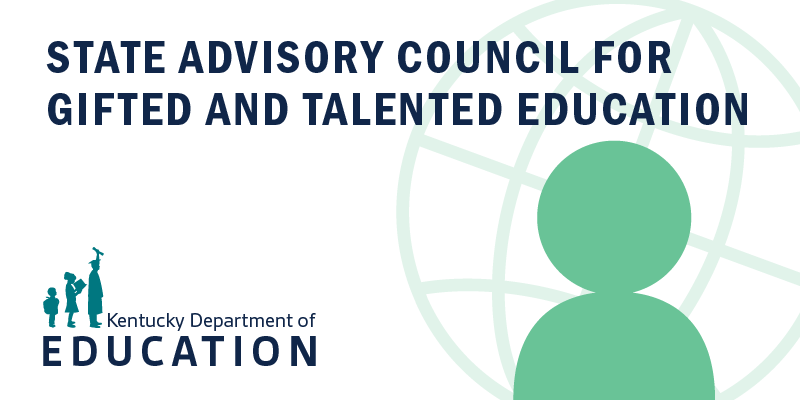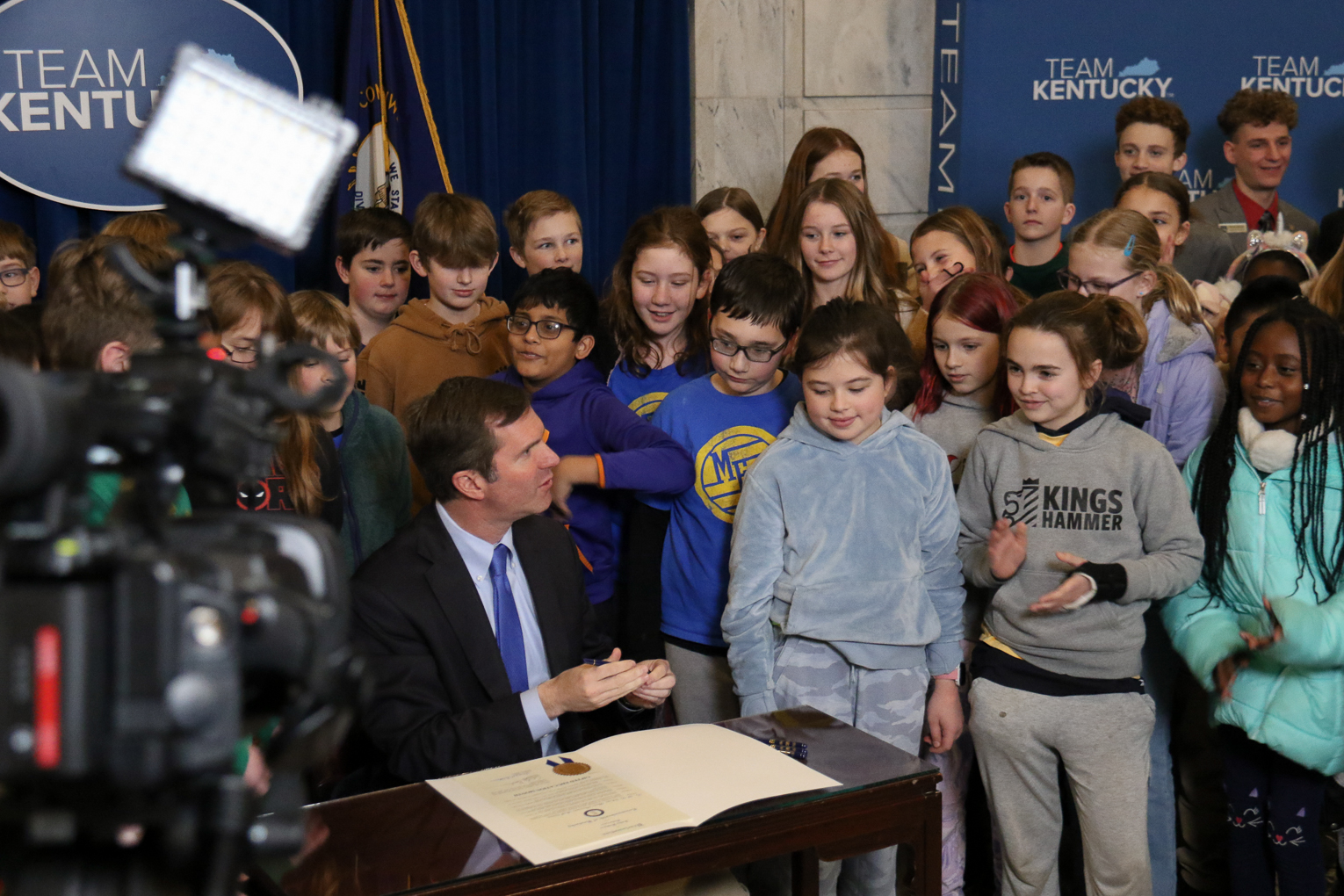
Kathie Anderson
Can students who are on the autism spectrum or students who have other disabling conditions be considered for gifted and talented services? The simple answer is yes.
For many years in gifted education, there has been a myth or misunderstanding that students can only be identified for gifted services if they met certain criteria. And while this is true, there are exceptions to these criteria under various conditions. In order for there to be equity and opportunity for all students to receive gifted services, the gifted regulation has a section on exceptions to the identification criteria.
According the gifted regulation 704 KAR 3:85, school staff must take into account environmental, cultural and disabling conditions which might mask a student’s true abilities when reviewing and identifying them for gifted services. The regulation also lists three categories in which these disabling conditions might be found: exceptional children (students with an Individual Learning Plan), disadvantaged and underachieving.
It is very important to think about how a student’s environment might affect his or her gifts and talents. Students who move frequently or are transient may miss information or parts of their educational curriculum. This would make it difficult to score at a high rate on a nationally normed test. Having moved frequently also might affect opportunities for leadership or talent development in the arts, as the student might not have had the chance to get involved in extracurricular activities or community events.
Students that come from very low socioeconomic backgrounds may not have had the same cultural opportunities as other students. They may not have had the opportunity or income to visit museums, libraries or zoos. These students also may not have the educational supports at home that influence the development of rich vocabulary or knowledge of the world outside of his or her home or community. Therefore, schools must be aware that students may be bright and talented, but may have not had the benefits afforded other students who are referred for gifted identification and services.
Students who have been identified for special education also can be identified for gifted services. A student can be receiving special education services for reading, but still be identified for any of the other gifted categories.
It may be challenging to find students who are both gifted and have a disabling condition. Counselors and teachers need to be on the lookout for discrepancies in sub test scores. When students are tested for special education, a student may have a low processing speed, but with closer examination have a very high verbal score.
When discrepancies are noticed in sub test scores, staff should be alerted to gather other evidence that the student may have high potential. It is important to remember that in Kentucky, there are five gifted categories: general intellectual ability, creativity, specific academic aptitude, leadership, and the visual and performing arts. Although a student may not be academically gifted, they may be gifted in the arts, creativity or leadership.
Special considerations should be taken into account for underachieving students too. Underachieving students are those students who show a discrepancy between potential and achievement in school. There are generally three causes for underachievement: lack of motivation, environments which do not nurture their abilities or a disability or learning deficit masking giftedness.
Collaboration is needed between parents and teachers to help the student progress to their potential. To get at the root of the problem, questions from teachers, other school staff and parents should be asked about the student’s strengths and problem areas, learning styles and what the student says about their own needs. Staying focused on the student’s strengths rather than the deficiency encourages the student and helps to build his or her confidence.
Teachers and staff need to be continually seeking students with gifts and talents. They need to be aware that gifted students aren’t always the teacher pleasers or high achievers. It is important to know that gifted students can be disadvantaged, have been identified for special education or be underachieving. Knowing these special considerations can help to ensure all students have opportunity and access to gifted identification and services.
Kathie W. Anderson is the Gifted and Talented Consultant for the Kentucky Department of Education and has been at the department for six years. She is the KDE liaison for the Kentucky Association of Gifted Education (KAGE) and for the Odyssey of the Mind. She is also the treasurer for the Council of State Directors for Programs of the Gifted. She earned her bachelor’s in Music Education from the University of Kentucky, masters from Georgetown College and her Gifted and Talented endorsement from Northern Kentucky University. Before coming to the Department, she taught in public school for twelve years and in the private sector for four.
Kathie W. Anderson is the gifted and talented consultant for the Kentucky Department of Education (KDE) and has been at the department for six years. She is the KDE liaison for the Kentucky Association of Gifted Education (KAGE) and for the Odyssey of the Mind. She is also the treasurer for the Council of State Directors for Programs of the Gifted. She earned her bachelor’s in music education from the University of Kentucky, a master’s from Georgetown College and her gifted and talented endorsement from Northern Kentucky University. Before coming to KDE, she taught in public school for 12 years and in the private sector for four.



Leave A Comment